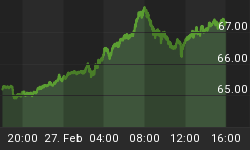The world’s wealthiest have more cash than they can reasonably burn. In a past article, we highlighted how the super-rich are now hoarding unreasonably high levels of cash, trade wars or no trade wars. With global inflation rate hovering around 3.6 percent per annum, having a third of your portfolio in cash is clearly a losing proposition with even the best-yielding CDs barely treading water.
But now it has emerged they are doing something far worse. Stock market investors in pursuit of boom-era returns have been chasing just about anything that appears to have a good growth story. Turns out the top percentile of earners across the globe are not only holding too much cash but also making terrible investments including buying shares of companies losing billions of dollars every year; bonds from little-known backwater countries or throwing too much money at Silicon Valley startups with dim prospects.
Dearth of good investment opportunities
It’s a bizarre trend characterized by too much money chasing too few healthy opportunities.
But let’s first get some facts straight. In this era when growing income inequality has been underpinning a wide array of social movements, it’s easy to castigate the so-called upper class for its profligacy. Maybe, we need to first define what it means to be wealthy.
Just like being happy, the concept of being wealthy is a little bit ambiguous. For some people, having meals out or having a Netflix, Amazon or Spotify subscription makes life feel a lot richer. The concept also varies from one country to another thanks to wide differences in Purchasing Power Parity (PPP)—a net worth of half a million dollars in the U.S. would barely make for a comfortable living whereas it would automatically catapult you to the class of the super-rich in one of the poorer nations.
Related: Beijing’s Plan To Disrupt Rare-Earth Exports
A Modern Wealth Survey Index by Charles Schwab pegs the net worth of a wealthy U.S. resident at $2.4 million. However, the top percentile is much wealthier, with a net worth of around $10.4 million.
The top percentile of U.S. households are among the most guilty of hoarding too much cash. According to an April report by Bloomberg, this group is holding about $304 billion in cash, good for 23 percent of their portfolios. That’s more than 20x the $15 billion or so they held before the financial crisis.
This hoarding business is a lot worse in other parts of the world, with the ultra-rich in Europe, Asia and Latin America having ~35 percent of their portfolios liquid.
As if that was not bad enough, the rich seem to be falling over themselves throwing good money after bad. Here in the U.S., until quite recently, it had become almost fashionable to invest in high-profile losers-- mainly sexy startups bleeding billions of dollars every year in losses. Lyft and Uber are some of the more memorable ones, though investors have lately started to sour on money-losing unicorns.
But it’s not just public investments that are being targeted. Private equity managers now have too much idle cash, thanks to the rich chasing higher yields by PEs compared to public equities. You can’t blame them though, with U.S. stocks hitting stratospheric valuations and making bargain-hunting akin to trying to find a needle in a haystack--(Warren Buffett—avid value investors-- is on record complaining he was unable to find anything big to buy).
This trend is manifesting in other ways, too. Tiny countries with dubious credit records are seeing their bond offerings routinely oversubscribed. Case in point is Tajikistan, a country you would probably struggle to find on a map, whose $500 million bond ended up receiving $4 billion worth of bids. The same goes for Uzbekistan, a former Soviet nation with a zero bond record, which saw its $1 billion bond offer receive $5.5 billion worth of bids at a stingy 4.75 percent coupon—well below the market average.
Even Saudi Aramco, an oil and gas giant in a sector that’s been falling out of favor, recently received more than $100 billion for its first international bond worth $12 billion--the largest ever in the history of emerging markets bonds.
Corporates awash in cash, too
But it’s just not individuals who have more money that they can put to good use.
With a record $2.3 trillion in profits last year, most companies are choosing not to re-invest the cash or pay their workers more (which would be bad for their stocks in the short-term). Instead, they are going for the easy-hanging fruit—buying back their own shares so as to goose earnings even more and increase their valuations in the marketplace. Last year saw American companies spend $1.1 trillion in buybacks, a record for the country. The move prompted Congress to begin to seriously consider banning stock repurchases.
You can blame the Fed’s QE program and tax cuts for the cash bonanza. Maybe Congress now need to enact laws to have more of this cash channeled towards schools, health care and infrastructure instead of sitting idle in banks earning minimal or zero returns.
By Alex Kimani for SafeHaven.com
More Top Reads From Safehaven.com:

















The key is finding 'boom towns' than want this.